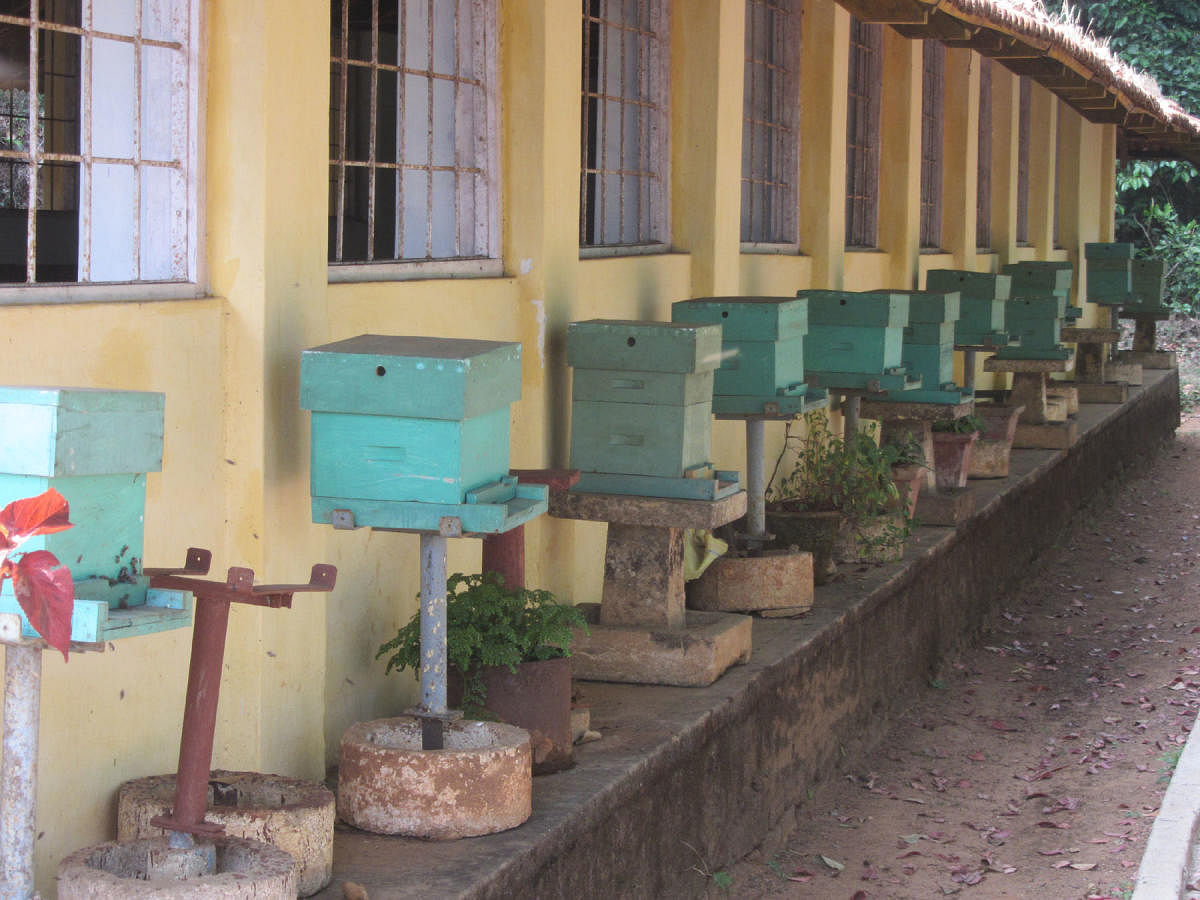
Honey bee farmers who were expecting a good honey production this November are a disappointed lot.
The honey production has declined drastically owing to shortage of the naturally available food due to heavy rain and flood.
Further, Thai Sacbrood Virus Disease has struck the honey bee colonies in the district on a largescale and has destroyed the colonies. The disease kills bees and hence there is no multiplication of bee colonies which adversely affects the production of honey.
The bee colonies in Bhagamandala, Talacauvery, Cherangala, Korangala, Sannapulikotu, Ayyangeri and other areas have been found to be affected by the disease.
In the past, the Thai Sacbrood Virus Disease had affected bee colonies and led to the destruction of apiculture in Kodagu district in 1991. Kodagu, in the past, was producing four lakh kilograms of honey annually. There was a good demand for honey from Kodagu across the country.
The bee colonies are once again affected by the disease and the beekeepers are worried over the fall in the honey production.
Farmer Ravindra said, “The district has 4,000 to 5,000 bee families. Annually, 7,000 kg of honey is produced in the district. The bees would extract honey from its sources, especially flowers, and develop the hive in the box into a honey hive. However, due to the natural calamities, naturally available flowers have declined drastically and thus affected the production of honey hives as well.”
“Bee families have also been affected by chilly weather,” said officer Vasanth.
He further said that awareness is being created among the farmers on the Thai Sacbrood Virus Disease.
“The government will provide 40% subsidy for keeping beehives. The farmers need not panic,” he added.